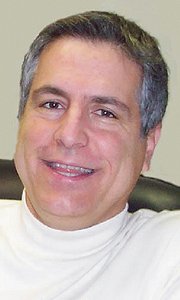Factoring in the Post-2005 World
Following the Jan. 1 expiration of World Trade Organization quotas on textiles and apparel, numerous companies are eager to take advantage of quota-free sourcing, particularly in China. But the rules for conducting business remain the same, according to factors. Namely, companies that plan to set up shop overseas need to do their homework, draw a timeline that they will stick to and secure their financing in advance.
Manufacturers also should be prepared to hop on a plane and build relationships with factory owners in China. That is what Alden Halpern did in 1999, when he began exploring overseas production for 4Whatitsworth Inc., a privately held maker of juniors and young women’s denim and sportswear under the Tyte, Beau Dawson and Duplex labels.
“It wasn’t easy,” Halpern said. The chief executive officer said he made two trips and spent six months on the ground to develop personal relationships with factory owners in China. As a result, he skipped the traditional route of financing his overseas orders with a letter of credit and got a shot at open account payment terms. Now, he said, his company can secure more than $200 million in credit around the world. He uses five factories in Shanghai in northern China and one in Guangzhou in southern China. “It’s all about relationships and honesty and trust,” said Halpern, who grew his annual wholesale volume sevenfold to $87 million from $12 million since his first trip to China.
Halpern said Commerce, Calif.–based 4Whatitsworth is in the midst of negotiations to purchase a 50 percent stake in a factory in Shanghai, where he is also opening an office staffed with as many as 18 people working in design, merchandising, sourcing, quality control and production.
Perhaps an extreme example, Halpern’s case demonstrates the benefits that an apparel manufacturer can reap if it plays its cards right. What is interesting about Halpern’s strategy is that he said he manages the business as if the WTO quotas were still in place, lining up alternative fabrics and using other factories in Egypt, Jordan, South America, Cambodia, the Philippines, Vietnam and Hong Kong.
“We do not believe that this no-quota [system] is going to stay around,” he said. “The most important thing is to get my customer my merchandise.”
No guarantees
Jeff Enoch, vice president at Rosenthal & Rosenthal Inc.’s office in Woodland Hills, Calif., echoed Halpern’s view on quotas.
“Don’t assume that the lifting of quotas will continue indefinitely,” Enoch said. “You’re dealing not only with our country’s laws but the foreign country’s laws.”
Indeed, on April 4, U.S. trade officials said they will “self-initiate” investigations into the possibility of curbing Chinese imports of cotton trousers, including blue jeans, cotton knit shirts and blouses, and cotton and synthetic-fiber underwear. (See related story here.)
Enoch said companies planning to manufacture overseas should prepare to spend at least three to six months doing homework such as locating production facilities and hire trustworthy employees who can speak the local language and travel on overseas trips with them. He said it is important to have a good factor because collecting receivables overseas is almost impossible and that it is helpful to work with a global bank that has a presence in the United States and a branch in the country from where the manufacturer expects to export. That way, the manufacturer can confirm the letter of credit if it has one, he said.
Companies also should plot out a timeline to ensure that they will receive deliveries from factories on time, said David Reza, senior vice president for the Western region in Milberg Factors Inc.’s office in Glendale, Calif. A timeline also will give importers a sense of how much working capital and financing they need to operate. He said manufacturers need to be aware of timing issues ensuing from big holidays such as Lunar New Year in China and Christmas and Easter in Mexico, when factories can require several weeks to slow down and ramp up. After all, late deliveries will undermine a manufacturer’s business with a retailer. “Retailers today don’t give their supliers too many chances to be late on deliveries,” Reza said.
Keeping the terms open
With the expiration of the WTO quotas, some companies are doing more business in China but others are moving production into Mexico, said Wells Fargo Century’s Kevin Sullivan, who is executive vice president and Western regional manager in Wells Fargo & Co.’s factoring division in Los Angeles. He said companies prefer to diversify production as much as possible and to wait and see how the quality of products made in China is. “Many would like to be sure that as production in China continues to expand, quality remains consistent,” he said.
Sullivan also said the trend for open credit terms from factories in the Pacific Rim is continuing. “Many factories in China have begun to realize that offering open credit terms provides a competitive advantage, enabling them to attract more business,” he said. “While we see that trend continuing, many of our clients still prefer the control and comfort that a letter of credit provides in the transaction.”
In an open, global economy, Mexican factories are aware of this development, he said. “If they are not able to be competitive with what is coming out in the Pacific Rim, they lose their competitive advantage,” he said.
Halpern of 4Whatitsworth said it is also important for an American company to live up to its terms. “Financially, you have to be prepared to have the invoicing and the bills paid on time regardless of whether you have the goods sold or shipped,” he said.
Halpern said many companies like to cut it short and pay after they ship the products and draw from the factor. Doing that can push a manufacturer out of a factory, he warned. He said he tries to match the amount he has for an order in his reserves. For example, for every $100,000 in an order, he has $100,000 in reserve to pay the factory in case he is unable to ship the goods to the customer. “You have to make sure you have extra financing in place,” he said.























